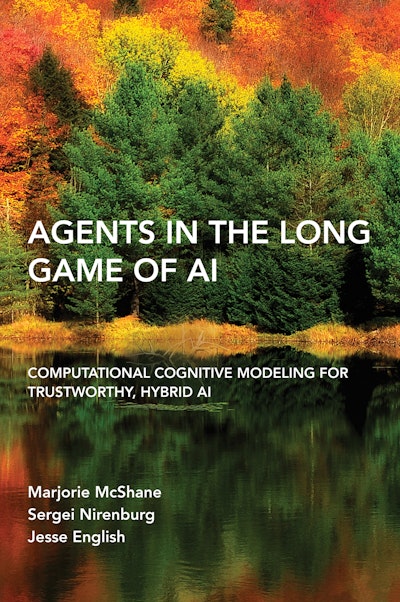- Published: 24 September 2024
- ISBN: 9780262549424
- Imprint: MIT Press Academic
- Format: Paperback
- Pages: 336
- RRP: $140.00
Agents in the Long Game of AI
Computational Cognitive Modeling for Trustworthy, Hybrid AI
- Published: 24 September 2024
- ISBN: 9780262549424
- Imprint: MIT Press Academic
- Format: Paperback
- Pages: 336
- RRP: $140.00
"[McShane and Nirenburg] strive for no less than natural communication between humans and machines and argue that this can be achieved only by adopting a primarily knowledge-based approach that endows the machine with global and deep 'understanding' of the facts and the processes....[They] often point out that their knowledge-based approach is superior to the machine learning one because it is not possible to achieve human like behavior with methods and tools that artificially separate the tightly interconnected components of the language and treat, for instance, semantic role labeling and ellipsis independently from reference resolution."
—Professor Stella Makantonatou, Institute for Language and Speech Processing / R.C. "Athena" GREECE

